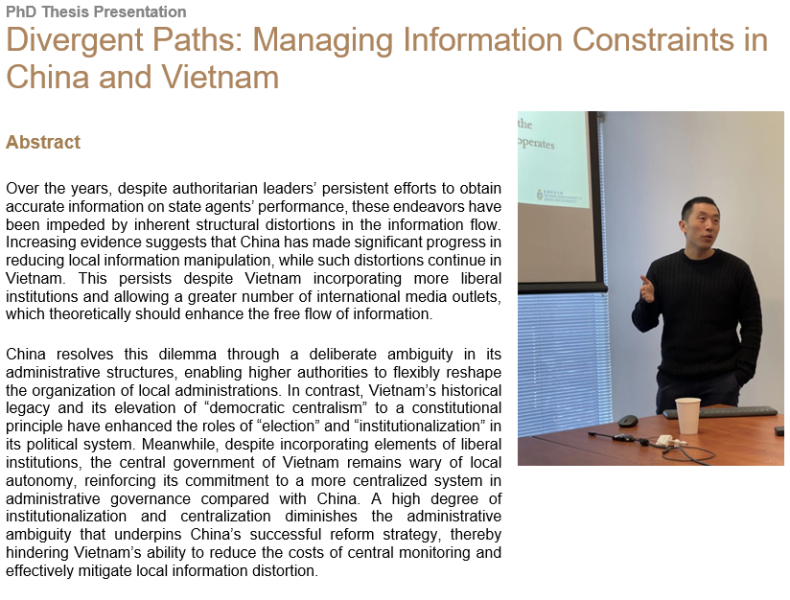Abstract
Over the years, despite authoritarian leaders’ persistent efforts to obtain accurate information on state agents’ performance, these endeavors have been impeded by inherent structural distortions in the information flow. Increasing evidence suggests that China has made significant progress in reducing local information manipulation, while such distortions continue in Vietnam. This persists despite Vietnam incorporating more liberal institutions and allowing a greater number of international media outlets, which theoretically should enhance the free flow of information.
China resolves this dilemma through a deliberate ambiguity in its administrative structures, enabling higher authorities to flexibly reshape the organization of local administrations. In contrast, Vietnam’s historical legacy and its elevation of “democratic centralism” to a constitutional principle have enhanced the roles of “election” and “institutionalization” in its political system. Meanwhile, despite incorporating elements of liberal institutions, the central government of Vietnam remains wary of local autonomy, reinforcing its commitment to a more centralized system in administrative governance compared with China. A high degree of institutionalization and centralization diminishes the administrative ambiguity that underpins China’s successful reform strategy, thereby hindering Vietnam’s ability to reduce the costs of central monitoring and effectively mitigate local information distortion.

